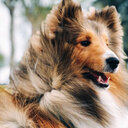Fatty liver and alteration of the gut microbiome induced by diallyl disulfide.
Từ khóa
trừu tượng
Diallyl disulfide (DADS) is one of the primary components of garlic and it exhibits a broad range of biological activities. In the present study, the effects of DADS on lipid metabolism and its potential role in the modulation of the gut microbiome were determined. Hematoxylin and eosin and oil‑red O staining were used to assess the liver and intestinal tissues of mice treated with DADS. The expression of lipid metabolism‑associated genes was measured using reverse transcription‑quantitative PCR (RT‑qPCR). The effects of DADS on the gut microbiome were measured using 16S recombinant (r)DNA gene analysis. The results revealed that the serum non‑esterified free fatty acids, high density lipoprotein‑cholesterol, low density lipoprotein‑cholesterol, serum total cholesterol, liver triglyceride and total cholesterol levels of the mice fed with a low‑dose of DADS was significantly higher when compared with the control. Hematoxylin and eosin and oil‑red O staining demonstrated that DADS induced fatty liver in mice. The results of the RT‑qPCR revealed that the expression levels of a number of lipid metabolism‑associated genes were altered in the livers of mice treated with DADS. The 16S rDNA gene analysis demonstrated that the mice fed on a normal diet treated with a low‑dose of DADS had decreased levels of bacteria from the Bacteroidetes phyla and increased levels of bacteria from the Firmicutes phyla. The Kyoto Encyclopedia of Genes and Genomes pathway analysis revealed the top 20 pathways enriched in the low‑dose DADS group of mice fed with a normal diet. In the present study, low‑dose DADS induced fatty liver and altered the gut microbiota, similar to the phenotype induced by a high fat diet, by regulating the expression of lipid metabolism associated genes.



